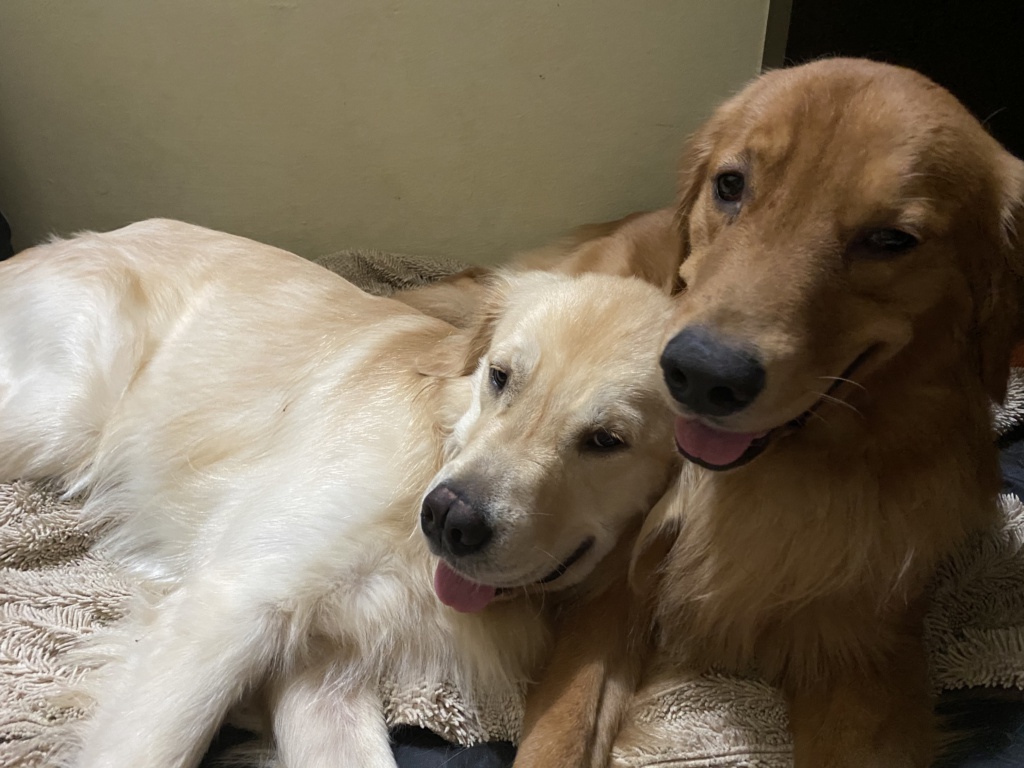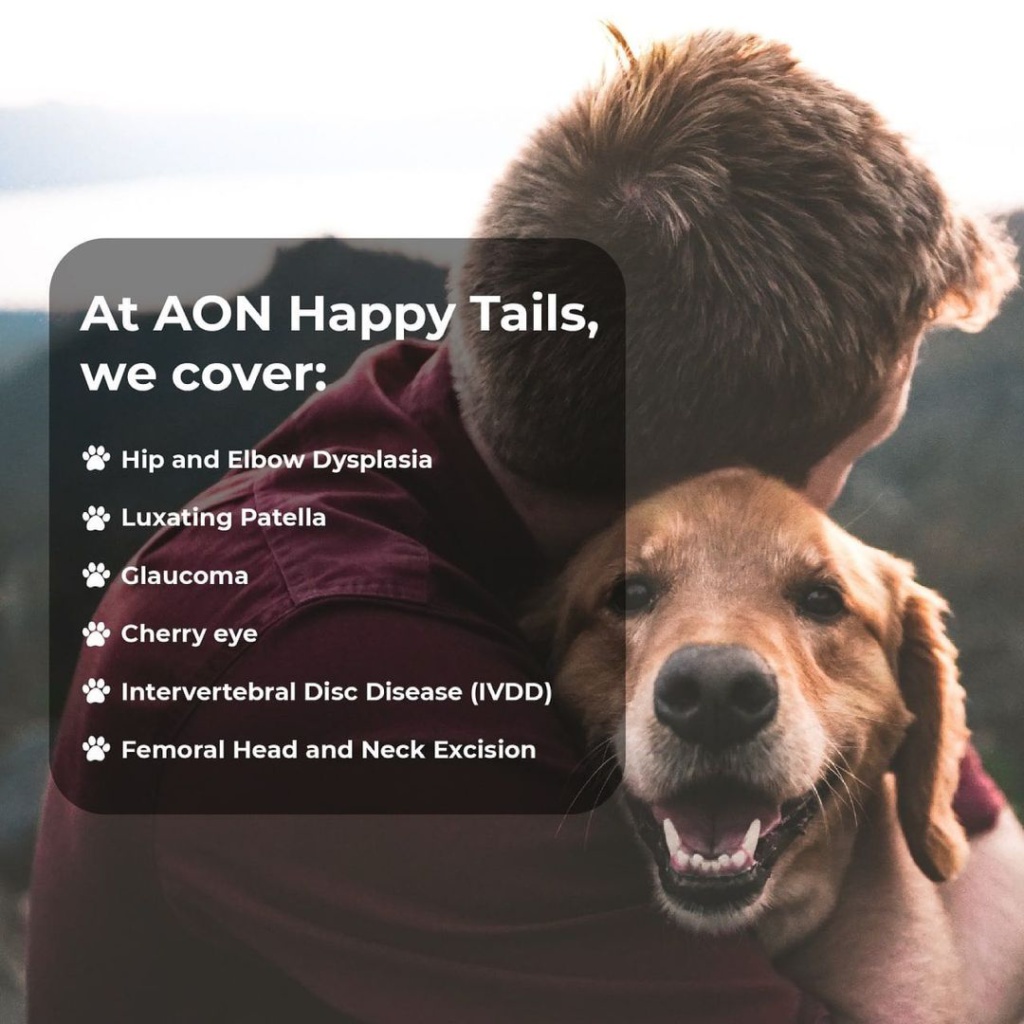Hip Dysplasia is a skeletal condition that commonly affects large and giant breed dog breeds. It might also occur in smaller breeds occasionally.
Hip Dysplasia affects your pet’s hip joint function. For dogs with hip dysplasia, their ball and socket joints are misaligned, making them rub and grind instead of moving smoothly.
Over time, it can also cause the joints to deteriorate, resulting in the loss of the joint’s function.
This condition is hereditary, however, it can also develop due to excessive growth rates, exercise habits, unhealthy weight and/or improper nutrition — (Source)
For pet owners whose dogs suffer from hip dysplasia, keeping up with their medical expenses can be tricky. Diagnosis of the condition alone incurs costs such as X-ray examinations, blood tests and radiographs.
We spoke to Sandra, owner of Dizzy and Woozy, of which the latter suffers from the aforementioned medical condition.
1. Hello, nice to meet you! Tell us more about your relationship with Dizzy and Woozy.
Dizzy and Woozy are our 2 golden retrievers. We could never imagine owning Golden Retrievers as they shed a lot!
However, in 2019, we had the chance to look after Dizzy due to our job as pet sitters. He came to us fortnightly for a couple of months.
Afterwards, my fiancee and I decided that we are ready for our own furkid, hence we began looking around for a doodle. As luck would have had it, we were given the opportunity to be Dizzy’s pawrents!
We’ve been looking after him since he was 5 months old and we finally adopted him when he was 10 months old.

Dizzy grew up in an environment with other boarders and daycare furkids. When Covid happened, it got quiet around the house as fewer boarders came to us.
We wanted him to have a sibling to play and grow up with. During the 2020 circuit breaker, we were given a chance to provide Dizzy with a little brother. Hence, we adopted Woozy who was 10 months old at the time.
Dizzy will be turning 3 years old in Aug 2021, while Woozy will be turning 2 years old in 2021.
We enjoy a very close relationship with both of them.
As we are pet sitters, we are home nearly 24/7, always doing things together especially during the circuit breaker ◡̈ They follow us around the house no matter what we are doing! They particularly love going on adventures and car rides!◡̈

2. How does having Hip Dysplasia affect your everyday life with them?
We suspected that Woozy might have hip dysplasia from the way he walked (his hips tend to sway). He doesn’t seem to have the strength to climb stairs, jump up onto the sofa/bed, and car either.
We have to carry him up to the car, help him up onto the bed and sometimes even wait for him while he climbs up the stairs.

3. How did you find out about your pet’s medical condition?
After a long 8km walk, we noticed that he began to walk a little funny. His hips were swaying a lot, which was very different from Dizzy’s.
Other golden retriever owners also informed us of this irregularity – many of them commented that his hind legs appeared to cross over each other as he walked, which were not common for most dogs.

Out of concern, we spoke to a vet about it. She suspected that he might have hips dysplasia but could only confirm via X-Ray under general anaesthesia, which we did not want.
So, we did not seek any treatment for it as it didn’t seem to be causing him any pain/discomfort.
4. Did you take on any activities/treatments for Woozy as a result of this condition?
The vet suggested swimming lessons and to reduce Woozy’s walking actions. We bring him for swimming 2-4 times a month, each session costing us around $24.
We also feed him rosehip powder daily, around $70-$140/month depending on the promotions available.
Because of swimming sessions, we also have to send him for grooming after swimming, which costs us around $80-$100/session.
- With regards to offsetting medical costs, we also checked with Sandra about her interest in pet insurance and how it might help her and Woozy.
5. Do you think pet insurance is helpful to owners whose pets are affected by hip dysplasia?
We have attended a lot of animal events since entering the pet industry, and have heard about pet insurance.
With regards to how it helps– I think it really depends on what the insurance covers. As you can see, hip dysplasia is an illness that requires long term care regardless of it being mild or serious. For e.g. swimming/supplements, and in serious cases, even surgery.
Will any insurance cover all of this?
If it is suitable for our boys, we are definitely interested in purchasing it.
To answer her question; Yes! Aon Happy Tails does cover hip dysplasia under their specific hereditary and congenital conditions!
Under their insurance policy, the surgical treatment of any sicknesses, injury or accident including post-surgical follow-up during the policy term.
Also covered are specified hereditary and congenital conditions and cancer treatment.

However, there is a ninety (90) days waiting period for sicknesses and a 12-month waiting period for Specified Hereditary and Congenital sicknesses from the policy’s first commencement during which sicknesses claims are not payable.
During the twelve (12) month waiting period, if conditions or symptoms of hip dysplasia begin to emerge, it will be considered a pre-existing condition and will no longer be covered by Aon Happy Tails.
Hip Dysplasia coverage will only be applied to pets who are enrolled before six (6) years of age.
You can find out more about Aon Happy Tails pet insurance via their Instagram or Website.
Follow Sandra, Woozy and Dizzy on Instagram
* This blog is designed to be a community where pet owners can learn and share. The views expressed in each post are the opinion of the author and not necessarily endorsed by Pawjourr. Always consult your veterinarian for professional advice.
